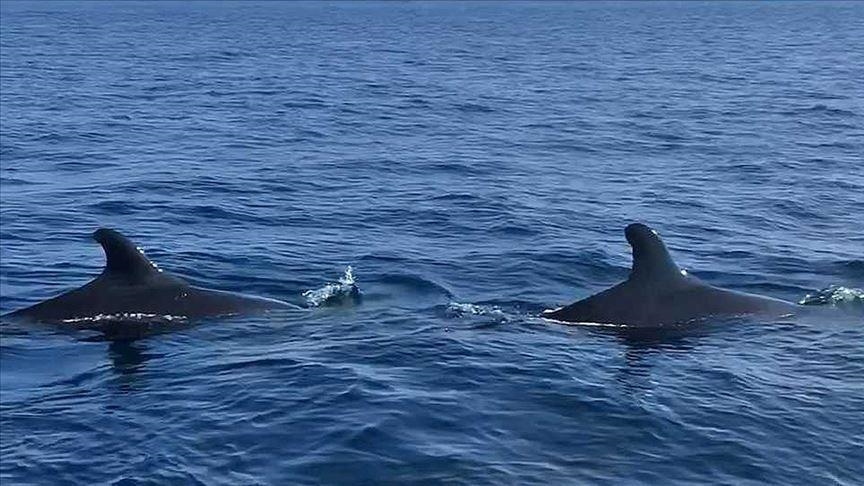France launches ambitious rescue mission for trapped beluga in Seine River
Whale extremely emaciated, needs to be urgently fed, say experts

PARIS
French authorities on Tuesday will move ahead with an ambitious rescue mission for the beluga whale that has been trapped in the Seine River for a week now, local media reported.
The animal swam upstream from the English Channel after having wandered far from its pod, Franceinfo reported.
Reports from experts suggest that the whale was alert but had not eaten for days.
Sea Shepherd France, a non-profit group working for the protection of the oceans, has been keeping watch by boat over the whale for the last week.
The group will attempt to extract the whale from the water assisted by local police, fire fighters and other officials.
The plan is to catch the beluga in a net, lift him by a crane, and place him in a truck at which point he will be transported to another seawater location for a few days to be examined and cared for, then released back into the sea.
The whale is, however, presently 130 kilometers (80.77 miles) from any coast.
Tricky operation
What makes the operation harder is that there is no vehicle accessibility on the banks of the river where the whale is.
Lamya Essemlali, president of Sea Shepherd France, told Franceinfo the rescue operation will be “particularly sensitive and heavy in logistics.”
She acknowledged the urgent need to feed the whale and get him hydrated.
“We have two former whale keepers with us, but it’s unclear how the beluga will react. Feeding a cetacean in captivity is one thing, it’s another with a wild animal,” Essemlali added.
In a tweet on Friday, Sea Shepherd said: “The animal is extremely emaciated.”
Attempts to feed him have been made over the last week, with dead herring, then live trout, even vitamin substances tossed into the water, but the beluga has not consumed anything, the non-profit group added.
Belugas are found most near the Svalbard archipelago, a cluster of islands between Norway and the North Pole or in the St. Lawrence River in Quebec, Canada.
Health hazard
The warmer temperatures of the Seine are harmful to the beluga's health. So is swimming in freshwater.
The operation also must be carried out, authorities say, as quickly as possible to sustain the whale’s life.
Despite plans for the very risky operation and the whale’s precarious state, Gerard Mauger, vice-president of the Cotentin Cetacean Study Group (GECC), told Franceinfo the beluga “is a well-toned animal, which spends very little time on the surface and performs long apneas” a temporary suspension of breathing in which the whale is submerged.
The deep dives, Mauger said, are a sign that his lung capacity “remains good.”
Mauger added, however, that catching the whale will be tricky.
“Even trying to approach him very carefully, it’s difficult. He makes a lot of changes of direction,” he added.
Anadolu Agency website contains only a portion of the news stories offered to subscribers in the AA News Broadcasting System (HAS), and in summarized form. Please contact us for subscription options.







